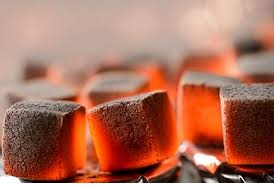
Renewable energy – The environmental impact of coconut charcoal briquettes can depend on various factors, including the source of the coconut shells used, the production process, and the transportation and distribution of the charcoal. In general, however, coconut charcoal briquettes can be considered a relatively environmentally friendly option for charcoal.
Coconut charcoal briquettes are made from coconut shells, a waste product of the coconut industry and would otherwise be discarded. Using coconut shells as a raw material, coconut charcoal briquettes can be considered a more sustainable option than traditional charcoal made from wood, contributes to deforestation.
Additionally, coconut charcoal briquettes are typically produced using a low-emission carbonization process that produces less smoke and ash than traditional charcoal production methods. This can make them a cleaner and safer option for grilling and other outdoor cooking applications.
However, it is crucial to consider the product’s entire life cycle, including transportation and distribution, as this can contribute to greenhouse gas emissions and other environmental impacts. Additionally, it is vital to ensure that the coconut shells used in production are sourced responsibly and do not contribute to adverse environmental effects such as deforestation or habitat destruction.
Overall, coconut charcoal briquettes can be a relatively environmentally friendly option for charcoal, but it is vital to consider the specific product and production process to make an informed decision.
Coconut Briquette is One Renewable Energy
Coconut charcoal briquettes can be considered a form of renewable energy produced using sustainably sourced coconut shells and a low-emission carbonization process.
Coconut shells are a waste product of the coconut industry and can be considered a renewable resource if they are sourced responsibly. Using coconut shells as a raw material for charcoal production makes it possible to create a renewable energy source that is less damaging to the environment than traditional charcoal made from wood.
However, it is vital to consider the product’s entire life cycle when evaluating its renewable energy credentials. This includes factors such as the energy required to transport and distribute the charcoal and the carbon emissions associated with the production process.
If coconut charcoal briquettes are produced using sustainably sourced materials and a low-emission production process, they can be considered renewable energy. However, it is essential to carefully evaluate each product and production process to determine its specific environmental impact and renewable energy potential.
You may like to read the article about Erosion Protection Matting Coconut Coir Geotextiles